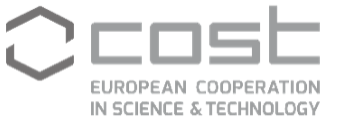WG4: Non-technical issues (M1 to M48)
Leader : Konstantinos Tsagarakis (EL)
Co-Leader : Georgios Tsalidis (EL)
This WG will complement T1-2 by sharing available data and experiences across Europe. WG4 will investigate the feasibility of the proposed city-scale geothermal systems; their environmental, social and economic potentials. This will be achieved by ensuring a multidisciplinary membership in WG4, including specialists from fields such as economics, policy and decision making, engineering geology, geotechnical engineering, behavioural scientists, legislation, architects and urban planning, Life Cycle Assessment together with key experts from the construction and geothermal energy industry. Furthermore, a workshop will be organised to discuss the feasibility of EGS challenges with invited experts mentioned above.
The objectives of WG4, leading to the tasks described below, are:
- Help to define best practices for minimising environmental and socioeconomic impacts of EGS;
- Identify gaps in public policies and propose solutions to bridge them.
A review of the National Laws, Ministerial Decisions, National Standards, Regional Regulations, Technical Rules and Best Practice Documents in the involved countries will collect all practices legislation and regulation. The gaps in legislation per country, similarities and differences will be identified. Based on the legal advances of pioneering authorities, the gaps identified the diverse approaches and a synthetic approach, a best implementation practice at EU, national and regional level will be developed. Standardisation practices or a rapid penetration of the technology will be proposed. In line with the COST Connect initiative, which initiated the cooperation of COST with CEN/CENELEC and Joint Research Centre (JRC), the proposed COST Action will involve experts cooperating with those and other relevant organisations.
A framework for the economic evaluation of the technologies will be proposed based on evaluation criteria. The methodology for “levelized cost of energy” calculations will be adjusted for EGS making the comparison with other energy technologies. With input from WG2, typical project appraisal indicators will be calculated, and values will be further analysed for input to decision making documents. Variables that may significantly variate the cost will be mapped, and economies of scale will be discussed for creating input to decision-makers.
The environmental performance of EGS will be evaluated based on T2-1 data and performance data produced at T2-2. The aim is to identify environmental hotspots and provide suggestions to further improve environmental performance. The social effects of EGS on the local community and supply chain of EGS materials will be discussed at the workshop which will be organised.
Based on results of T4-3, averaged data regarding materials and energy flows of shallow geothermal unit(s) will be calculated based on various identified shallow geothermal EGS at T2-1. Expansion datasets will be stored in open access European repositories and added to the Ecoinvent Database. Ecoinvent database is the leading commercial Life Cycle Inventory database in LCA studies worldwide.
Deliverables WG4
- D4.1 - Proposal of framework for the economic evaluation of EGS ( 24 month )
- D4.2 - Standardisation practices or rapid penetration of EGS ( 36 month )
- D4.3 - Journal Papers for dissemination of legal, economic and environmental assessment results ( 24,36 month )
- D4.4 - Creation of datasets for open access repositories and EcoInvent database ( 42 month )
- D4.5 - Recommendations to overcome non-technical barriers ( 48 month )
- D4.6 - Organization of workshop to discuss societal results with experts, e.g. sociologists, architects and engineers ( 42 month )


